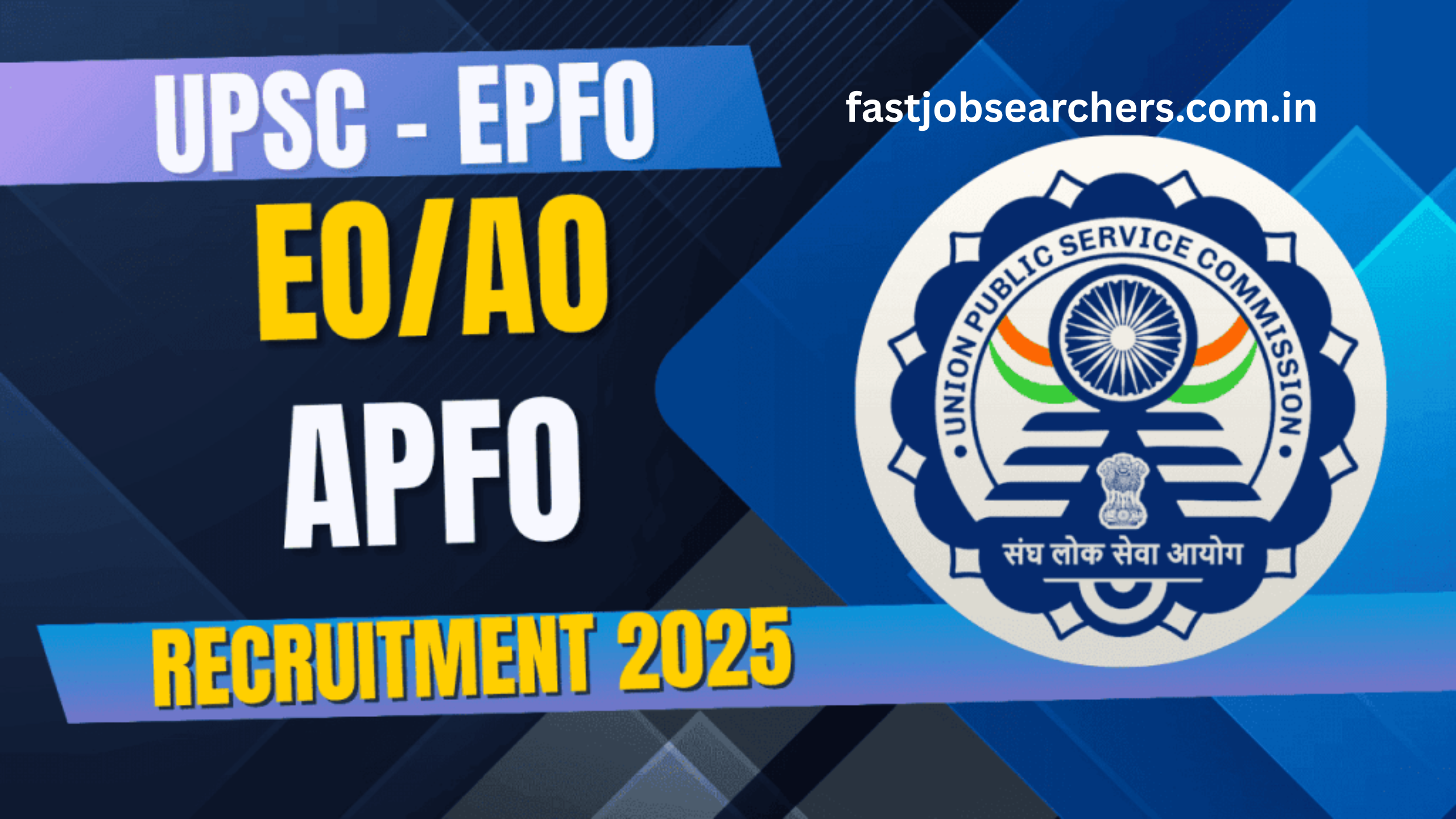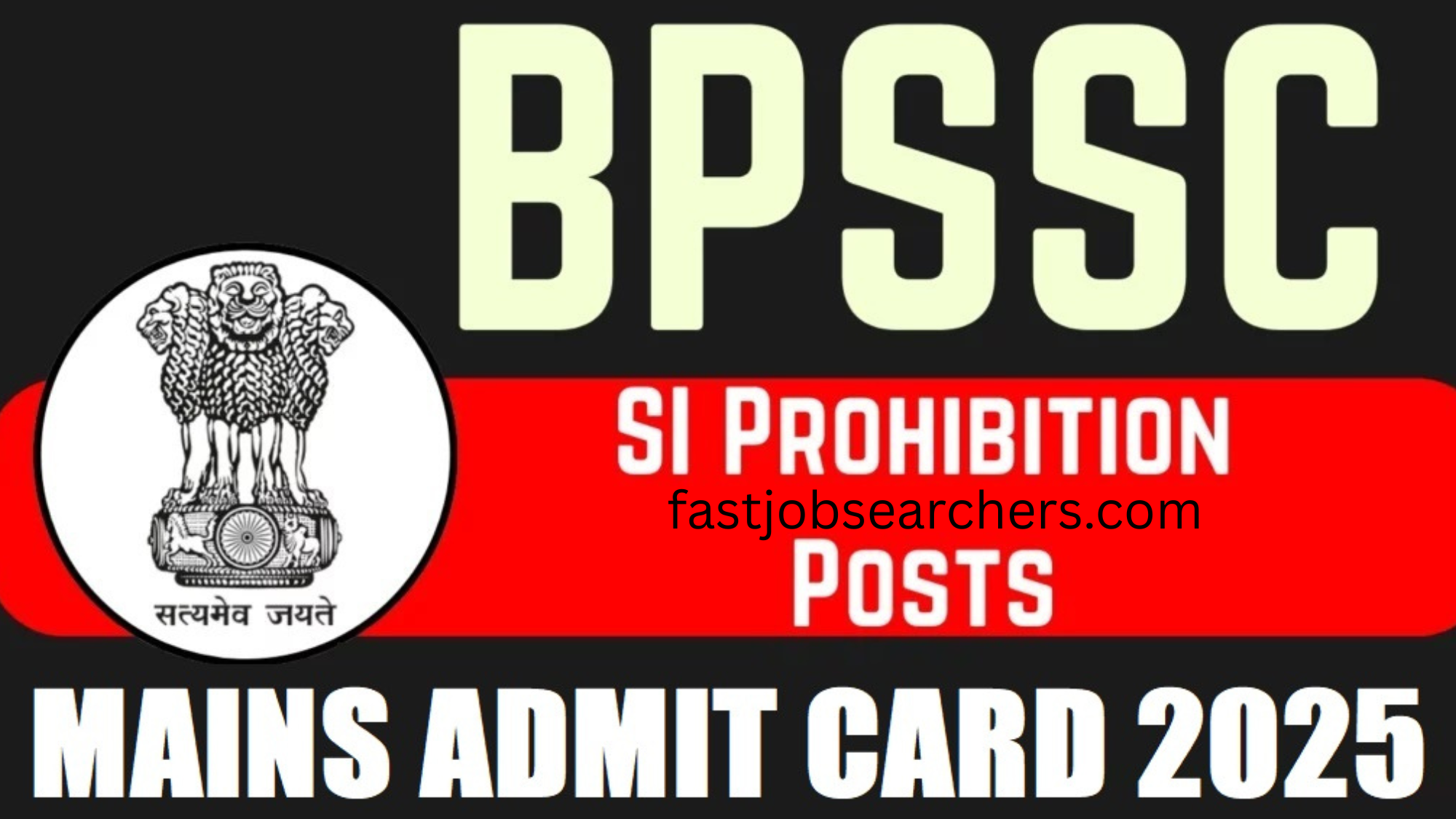The Union Public Service Commission is preparing to conduct recruitment for the roles of Enforcement Officer or Accounts Officer and Assistant Provident Fund Commissioner in the Employees’ Provident Fund Organisation under the Ministry of Labour and Employment. These are esteemed positions offering career security, national service, and good compensation, making this recruitment a highly anticipated opportunity for aspirants across India.
This article presents a complete guide to the recruitment process including eligibility, application procedure, selection stages, exam structure, syllabus, and preparation insights. Whether you are a first-time applicant or a repeat candidate, this detailed overview will help you navigate your journey.
Overview of UPSC EPFO Recruitment
The EPFO recruitment conducted by the Union Public Service Commission is a nationally recognized competitive exam. Candidates selected for these roles will contribute significantly to India’s labor and financial regulatory systems. The positions under this recruitment drive are Enforcement Officer or Accounts Officer and Assistant Provident Fund Commissioner. Each comes with distinct roles but shares the common purpose of enforcing labor and social welfare legislation in India.
The application process is conducted online through the official website of the commission. The recruitment is open to graduates from all disciplines, providing a broad gateway for job seekers looking to work in public administration.
Post Details
Enforcement Officer or Accounts Officer
The primary responsibilities of an Enforcement Officer or Accounts Officer include conducting inspections to ensure compliance with labor laws, initiating legal action against violators, maintaining accounts and data related to provident funds, and advising employers and employees on various labor-related matters.
This is a group-level position with fieldwork responsibilities and administrative duties, demanding both integrity and initiative.
Assistant Provident Fund Commissioner
An Assistant Provident Fund Commissioner is responsible for policy administration, legal enforcement, and ensuring smooth operations of the provident fund scheme. This role includes attending hearings, issuing notices, guiding claim processing, and interacting with various stakeholders including employers, employees, and legal representatives.
This position is more supervisory and policy-oriented compared to the Enforcement Officer role, involving higher administrative authority.
Eligibility Criteria
Candidates interested in applying for these roles should ensure that they meet the required eligibility criteria as specified by the commission. These include parameters related to nationality, educational background, and age.
Nationality
The candidate must be a citizen of India. Citizens of neighboring countries or regions may be eligible under specific conditions, such as individuals of Indian origin who have migrated for permanent settlement.
Educational Qualification
For both Enforcement Officer or Accounts Officer and Assistant Provident Fund Commissioner, the minimum requirement is a bachelor’s degree from a recognized university. Candidates with higher qualifications such as a degree in law, business administration, or chartered accountancy will be considered favorably for the APFC post, as these qualifications are listed under desirable criteria.
Age Limit
The upper age limit for the Enforcement Officer or Accounts Officer post is set at thirty years. For the Assistant Provident Fund Commissioner role, the age limit extends slightly higher. However, age relaxations are available to candidates from reserved categories, ex-servicemen, persons with disabilities, and those already serving in central government roles.
Selection Process
The selection process is multi-stage and designed to assess the candidate’s academic knowledge, analytical thinking, legal awareness, and personality traits necessary for public service.
Written Test
Both positions require candidates to undergo a written test. This is a screening test based on multiple-choice questions. The subjects covered include general awareness, Indian polity, current events, labor laws, social security, general mental ability, and industrial relations.
Interview
Shortlisted candidates from the written examination are called for an interview. The interview assesses not only subject knowledge but also personality traits, confidence, clarity of thought, decision-making ability, and commitment to public service.
The final selection is based on the combined performance in the written exam and the interview.
Exam Pattern
Understanding the examination pattern is crucial to developing an effective study plan. The written examination is of objective nature and includes a single paper.
- Duration: Two hours
- Type: Objective multiple-choice questions
- Medium: English and Hindi
- Negative Marking: One-third mark deducted for each wrong answer
Subjects typically include:
- Indian Polity and Constitution
- General Science and Technology
- Current Events and Developmental Issues
- Indian Economy and Accounting Principles
- Industrial Relations and Labor Laws
- General English and Comprehension
- Mental Ability and Quantitative Aptitude
Syllabus
A detailed syllabus is essential to understand what to study. Below is an outline of key topics generally covered in the exam:
Indian Polity and Constitution
- Structure of the Indian Constitution
- Fundamental Rights and Duties
- Directive Principles of State Policy
- Parliament and Legislative Procedures
- Judiciary and Legal System
General Science and Technology
- Scientific Developments and Innovations
- Everyday Science Concepts
- Space and Defense Technologies
- Environmental Issues and Solutions
Current Events
- National and International Affairs
- Government Policies and Reforms
- Important Summits and Conferences
- Social and Economic Developments
Indian Economy
- Economic Planning and Budgeting
- Basic Accounting Principles
- Taxation and Revenue System
- Industrial Development and Growth
Labor Laws and Social Security
- EPFO and Provident Fund Rules
- Industrial Dispute Act
- Trade Unions Act
- Minimum Wages and ESI Act
General English
- Grammar and Vocabulary
- Comprehension Passages
- Synonyms and Antonyms
- Sentence Correction
Mental Ability
- Logical Reasoning
- Numerical Ability
- Data Interpretation
- Puzzles and Series
How to Apply Online
The application process is carried out through the online portal of the commission. Here are the general steps for submitting your application:
- Visit the official website and navigate to the “Apply Online” section.
- Select the post for which you wish to apply.
- Register using your basic information such as name, date of birth, mobile number, and email ID.
- Log in with your registration details to access the application form.
- Fill in all required fields, including educational qualifications and category information.
- Upload scanned copies of your photograph, signature, and identification documents.
- Pay the application fee using available payment options such as net banking or UPI.
- Submit the application form and download the confirmation page for reference.
Application Fee
Candidates are required to pay a nominal application fee during the submission of the online form. The fee is exempted for certain categories including women, SC, ST, and persons with disabilities.
The payment can be made through various modes including debit card, credit card, and bank transfer.
Preparation Tips
The UPSC EPFO exam is competitive but can be cracked with the right preparation strategy. Here are some tips to help you prepare effectively:
- Start by analyzing the previous year’s question papers to understand the pattern and difficulty level.
- Prepare a daily study schedule and allocate time for each subject based on your strengths and weaknesses.
- Refer to standard books and UPSC-level resources for subjects like Indian Polity and Economy.
- Subscribe to a good current affairs magazine and stay updated with national and international events.
- Practice multiple-choice questions daily to improve speed and accuracy.
- Revise regularly and attempt mock tests to assess your performance.
- Work on time management and avoid spending too much time on any one section in the exam.
Documents Required
Before applying and during later stages, candidates may be required to produce certain documents. These include:
- Matriculation Certificate (proof of date of birth)
- Graduation Certificate
- Category Certificate (if applicable)
- Disability Certificate (for PwBD candidates)
- Experience Certificates (if applicable)
- Photo ID Proof
Ensure all documents are clear and valid at the time of submission.
Exam Centres
The exam is conducted across various cities in India. While filling out the application form, candidates can choose their preferred examination center. However, allocation is based on availability and is not guaranteed.
It is advisable to apply early to secure a center of your choice.
Admit Card
The admit card is released a few weeks before the examination date. It must be downloaded from the official website and carried to the exam center along with a valid photo ID.
Details such as roll number, exam timing, venue, and instructions will be mentioned on the admit card.
Result and Merit List
After the examination and interview stages, the final result is declared on the official portal. The merit list is prepared based on combined scores from both stages.
Candidates included in the merit list will be contacted for the further joining process and training programs.
Job Profile and Career Growth
The selected candidates will join EPFO and undergo initial training before being posted to various regional offices. The job involves a mix of administrative work, public interaction, legal enforcement, and record management.
Career progression is well-structured and includes promotions to higher roles based on experience, performance, and departmental exams.
Benefits and Allowances
Apart from a respectable pay scale, the positions also offer several benefits:
- House Rent Allowance
- Travel Allowance
- Medical Facilities
- Pension and Provident Fund
- Gratuity and Leave Encashment
- Job Stability and Social Respect
Challenges and Responsibilities
Though prestigious, these roles come with challenges. Officers must be prepared to handle legal disputes, inspections, audits, and sometimes confrontations with employers violating labor laws. The role demands courage, integrity, and sound judgment.
Frequently Asked Questions
What is the UPSC EPFO EO/AO, APFO Recruitment 2025?
It is a recruitment drive conducted by the Union Public Service Commission to appoint Enforcement Officers, Accounts Officers, and Assistant Provident Fund Commissioners in the Employees’ Provident Fund Organisation under the Ministry of Labour and Employment.
Who conducts the EPFO EO/AO and APFC examination?
The examination is conducted by the Union Public Service Commission.
What is the educational qualification required for EO/AO and APFC posts?
A bachelor’s degree in any discipline from a recognized university is required. For the APFC post, qualifications in law, management, or related areas are desirable.
What is the age limit for these posts?
The upper age limit for the EO/AO post is thirty years, while for the APFC post, it is thirty-five years. Age relaxations apply for reserved categories as per government norms.
What is the selection process for UPSC EPFO Recruitment?
The selection involves a written examination followed by an interview.
Is there negative marking in the written exam?
Yes, one-third of the marks assigned to a question are deducted for each incorrect answer.
How can I apply for the UPSC EPFO EO/AO, APFC exam?
Applications are submitted online through the official UPSC website by completing the registration and application form.
What subjects are covered in the written examination?
The exam includes topics like Indian polity, general accounting principles, labor laws, industrial relations, general science, current events, English comprehension, and logical reasoning.
What is the salary for EPFO EO/AO and APFC posts?
The EO/AO post is at Level 8 and the APFC post is at Level 10 in the pay matrix, along with allowances and benefits.
Can final-year students apply for the exam?
Only those who have already completed their graduation before the application closing date are eligible to apply.
Is the exam conducted in both English and Hindi?
Yes, the examination is bilingual, available in both English and Hindi, except for the English section.
Conclusion
The UPSC EPFO EO/AO and APFC Recruitment 2025 is a golden opportunity for graduates looking to enter government service. With structured preparation, smart time management, and consistent practice, candidates can aim to crack this highly competitive exam and secure a respected career in the public sector.





